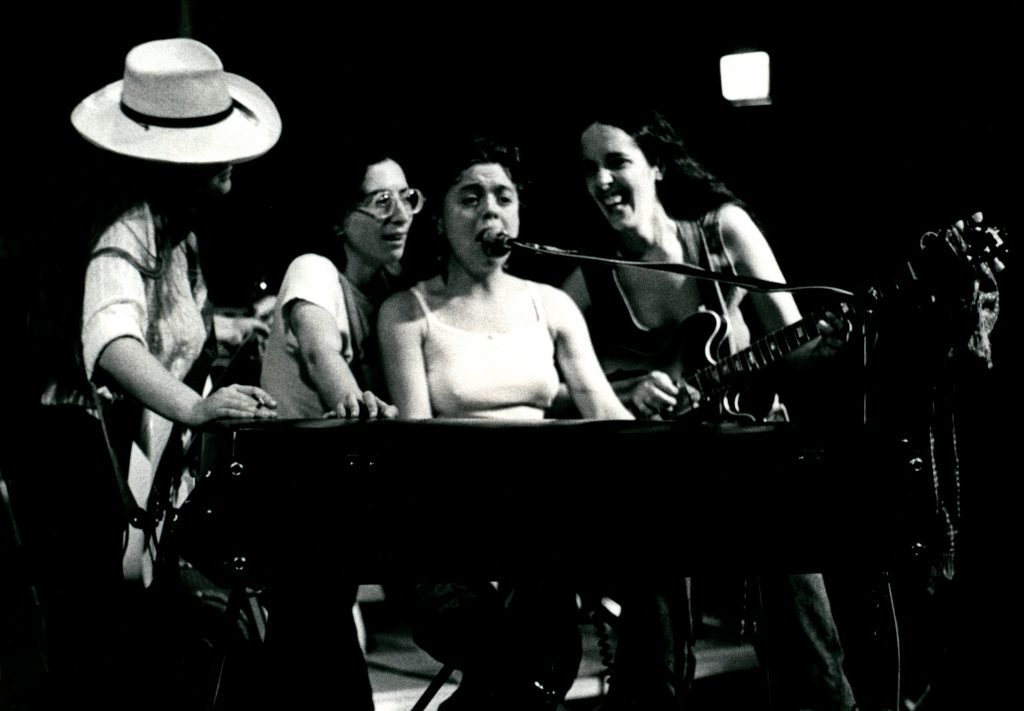BeBe K’Roche liner notes, 1976, Olivia Records. Sophia Smith Collection, Women’s Music Archives records and collected music.
BeBe K’Roche’s album was released in 1976. The women of Olivia wanted women’s music to be everything that women were, so this album was an important step for Olivia because it expanded the definition of what women’s music could be and how women were represented.
BeBe K’Roche was a band of eclectic, bohemian lesbian women from the Bay Area, and the album they made was a rock album. This was a new sound from Olivia–the previous two albums had been folk/singer-songwriter albums–and further, BeBe K’Roche finally brought women of color into the studio as musicians and producers.
The band was formed of Virginia Rubino, Jerene O’Brien, Peggy Mitchell, and Janet (Jake) Lampert, and produced by Linda Tillery, a well-known Black musician from the Bay Area, who had never produced an album before. Affording Tillery the opportunity to learn and produce this album was true to Olivia’s vision of creating opportunities for women’s employment and the space in which to learn skills in music production and the recording industry.
The band chose to do very little marketing and focused heavily on touring instead, a decision that didn’t translate to high record sales. By the end of 1977, 14 months after the release, the album had sold less than 9,500 records 1.
To engineer the album, Olivia hired Sandy Stone–a trans woman and experienced sound engineer. This quickly became a huge point of controversy in the lesbian and feminist communities. When Stone’s involvement with Olivia was discovered, Olivia received numerous hate-filled letters and records sent back smashed from women who thought trans women would destroy the women’s movement, and declared that Olivia could no longer call themselves a “women’s” record company. 2
In the eyes of the Olivia women, Stone had given up whatever male privilege she had had, and was a very capable and established engineer. They kept Stone on, but ultimately became much more defensive, jaded, and “less willing to open ourselves to the community.” 3 This controversy was part of a larger division in lesbian feminism–still ongoing–between a “woman-identified feminism” and the quest for women-only spaces, and the rise of advocacy for more “inclusive, trans-positive, and fluid definitions of gender.” 4


